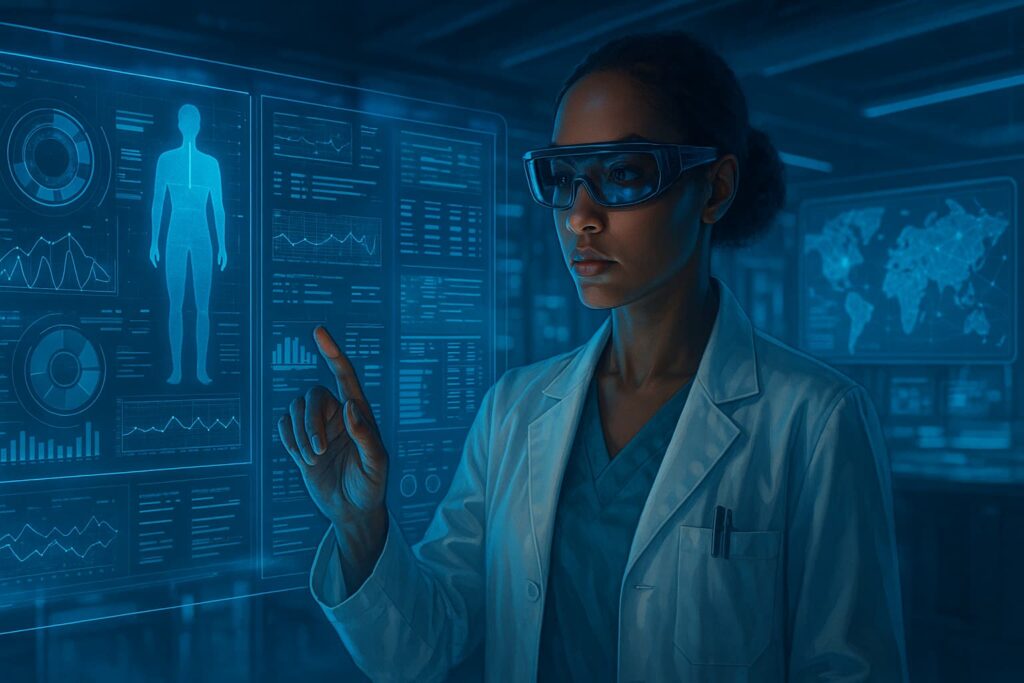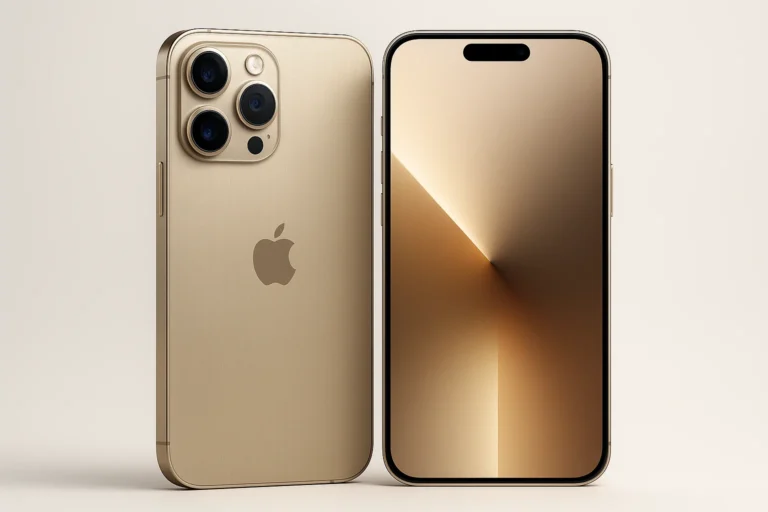
Artificial intelligence is no longer a futuristic concept AI in Healthcare is reshaping the global medical landscape in real time. In 2025, from advanced diagnostics to robotic surgery and predictive analytics, hospitals and medical systems are using AI to cut costs, boost efficiency, and save lives.
In fact, with a projected global market value of $188 billion by 2030, AI in Healthcare has become one of the most disruptive and commercially viable transformations in modern medicine.Here are five powerful ways AI in Healthcare is making a difference today
Get Hosting Smarter
- 🌐 Free Domain Included
- 💰 Only $2.99/mo
- 📞 24/7 Expert Support
🎮 Latest Products for Gamers
1. Early Disease Detection with AI
One of the most game-changing applications of AI in Healthcare is early diagnosis. Today, AI models outperform humans in identifying diseases like breast cancer, epilepsy, and Alzheimer’s — even before symptoms appear.
Real Example:
Google’s DeepMind developed an AI tool that surpasses radiologists in breast cancer detection. Similarly, AstraZeneca’s predictive model can forecast more than 1,000 diseases before any clinical signs emerge.
Impact:
✔ Faster diagnosis
✔ Higher accuracy
✔ Lower mortality rates
“AI can find two-thirds of epilepsy brain lesions missed by doctors.” – BBC Health
2. AI-Driven Drug Discovery & Trials
Traditionally, drug development takes 5–10 years. But thanks to AI in Healthcare, that process is being radically shortened.
Real Example:
Insilico Medicine used AI to design a pulmonary fibrosis drug in just 18 months, now in clinical trials — a feat previously unheard of.
Impact:
✔ Faster time-to-market
✔ Personalized treatments
✔ Massive R&D savings
AI is expected to reduce the average drug development cost by 30–50%.
3. Robotic Surgery Powered by AI
AI in Healthcare is also enhancing precision surgery. Systems like the da Vinci Surgical Robot enable doctors to perform delicate procedures with higher accuracy and fewer complications.
Real Example:
Mayo Clinic integrates AI-assisted robots to minimize post-op issues in surgeries like prostate removal.
Impact:
✔ Minimally invasive procedures
✔ Shorter recovery time
✔ Fewer surgical errors
“AI robots are now trusted with some of the world’s most delicate surgeries.” – HealthTech News
4. 💬 AI Chatbots & Clinical Decision Support
AI chatbots are now frontline tools in patient triage, reducing the burden on emergency rooms and offering 24/7 virtual assistance.
Real Example:
The UK’s NHS uses AI to route non-critical patient issues, reducing ER wait times and frontline pressure.
A more advanced version, ChatRWD, delivers relevant, evidence-backed medical guidance better than ChatGPT or Gemini, as found in a US study.
Impact:
✔ Better triage
✔ Streamlined admin
✔ Empowered patients
5. Predictive Analytics to Save Lives
Using real-time data, AI in Healthcare can now predict critical outcomes — including risk of sepsis, heart failure, or readmission.
Real Example:
Mount Sinai Health System uses predictive AI trained on patient records to detect sepsis 48 hours in advance.
In the UK, AI tools help paramedics assess ambulance needs, ensuring only critical patients are transported — improving emergency response.
Impact:
✔ Prevents complications
✔ Saves healthcare costs
✔ Reduces strain on hospital resources
AI for Admin & Clinical Notetaking
Administrative work consumes 30–50% of clinicians’ time. AI in Healthcare now includes tools like Microsoft Dragon Copilot, which listens to doctor-patient conversations and auto-generates notes — freeing doctors to focus on care.
Impact:
✔ Reduced paperwork
✔ Enhanced productivity
✔ Lower clinician burnout
Reality Check: Why AI in Healthcare Adoption Is Lagging
Despite this massive potential, the World Economic Forum notes that AI in Healthcare lags behind other industries in adoption. Challenges include:
- Data privacy
- Bias in AI models
- Lack of training for clinicians
- Regulatory complexity
But the direction is clear — with generative AI in healthcare projected to reach $17B by 2034, there’s no going back.
“AI transformation goes beyond tools — it’s about how health is accessed and delivered.” – World Economic Forum
Final Thoughts: The AI Healthcare Revolution Has Just Begun
From preventing strokes to accelerating drug discovery, AI in Healthcare is driving a new era of medical excellence. This is no longer a trend — it’s a tectonic shift in global care delivery.
Whether you’re a digital health startup, medical provider, or policy leader, now is the time to engage. AI in Healthcare is not only saving lives — it’s building the future of medicine.
 Laser Cleaning Machine
Laser Cleaning Machine Used RTX 3090 GPU
Used RTX 3090 GPU Nintendo Switch 2
Nintendo Switch 2



1 thought on “5 Smart Ways AI in Healthcare Is Transforming Patient Outcomes in 2025”